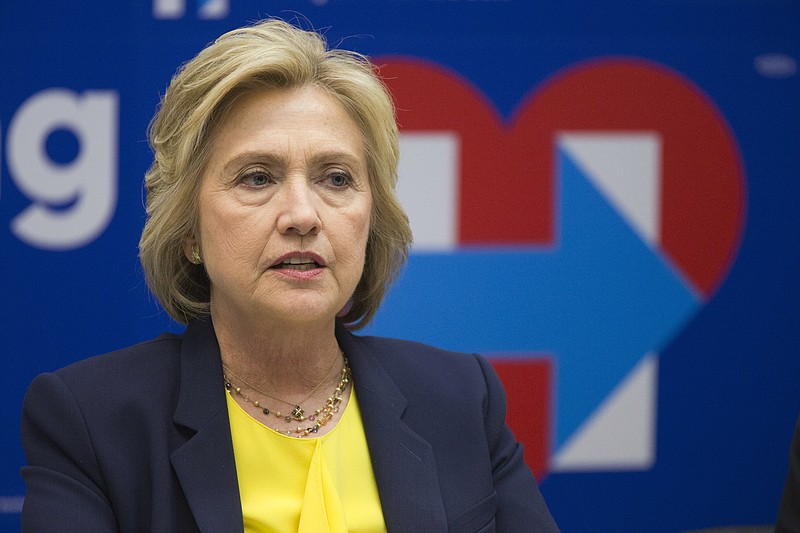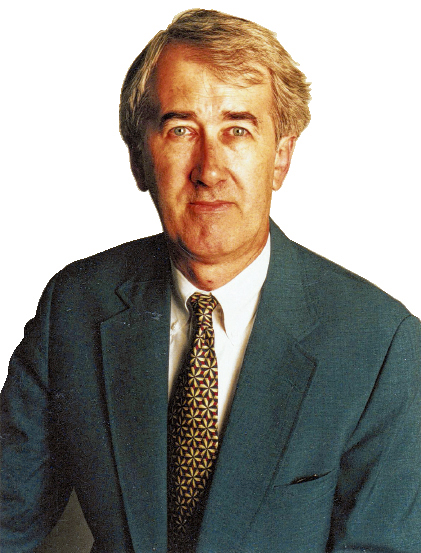"Buckle your seat belts. It's going to be a bumpy night." - Bette Davis as Margot Channing in the 1950 film "All About Eve."
Memorable advice, given the film's looming personality clash. But change "night" to "five months" and there it is: an instant warning about the looming presidential election. For now, never mind the temptation to re-examine the likely Clinton vs. Trump clash.
Instead, focus on whether the presidential candidates will provide Americans with the civil campaign they deserve. If you're pessimistic, join like-minded others.
In recent history many have written about the "coarsening of America," and rightly so. But the phrase was too often applied to films and television and too rarely to politics. Mr. Dooley, created by 19th century humorist Finley Peter Dunne, observed that "politics ain't beanbag."
Many Americans opposed the election of John F. Kennedy in 1960 because of his Roman Catholic faith - despite Article 6 of the Constitution that bans religious tests for holding elective office, and as if his infant baptism as a Catholic disqualified him for the presidency. Kennedy addressed those fears in a speech to Southern Baptist pastors in Dallas and narrowly defeated Richard Nixon.
In retrospect, that campaign was innocent compared to what passed for political discourse in the 2008 and 2012 presidential elections. But officials of both parties are convinced this year's campaign will be unlike any other in the last half-century.
That is because it follows Barack Obama's eight-year presidency in which personal and even racist criticism became coarsely routine. He is still the target of sophomoric Facebook memes, many reposted as "likes" on others' pages. Much of that social media criticism seems to spring from those, including Donald Trump, who embraced the anti-Obama "birther" idiocy.
Trump himself has been lampooned by critics, especially Republicans appalled that he is their presumptive nominee. But he has seemed more energized than angered by his critics. Of course he has been no slouch when it comes to defining his opponents.
He's already deploying the same tactic against "Crooked Hillary." However, his election is not guaranteed, for two reasons: He will face a wholly different electorate. And many GOPers may vote for Clinton or stay home on Nov. 8.
Americans will soon be inundated by some $2 billion in campaign spending. But first, both parties must deal with potentially divisive conventions: Republican moderates vs. Trump true believers, Clinton supporters vs. the Bernie bunch.
And after that, three months of mean-spirited campaigning could discourage many Americans from voting. That would be a terrible consequence of political coarseness - but it need not be inevitable.
Rick Warren, pastor of the Saddleback Church in California, talked about this in a 2012 ABC interview in which he bemoaned "the coarsening of our culture [and] the loss of civility," adding that frequently "we don't know how to disagree without being disagreeable."
There are major political, religious and economic differences in America, he said, and "I don't think some of those differences are solvable. What is solvable is how we treat each other with our differences." Without a "spiritual root to civility, "[you'll] go for the expedient," meaning that winning trumps everything else. And "You can't fix the problem as long as you're fixing the blame."
Disagreements are common in politics. Always have been, always will be. But they didn't prevent past accomplishments that helped make America a marvelous example to the world.
Michael Loftin is former editorial page editor of The Chattanooga Times.

